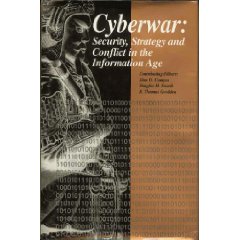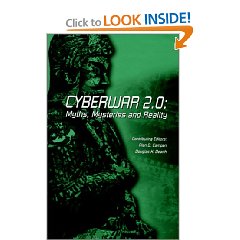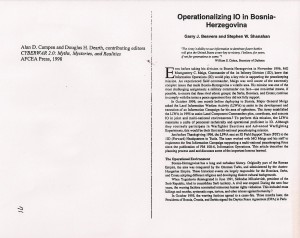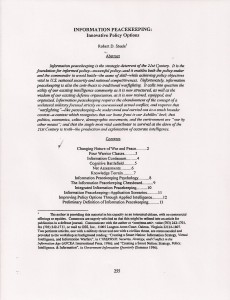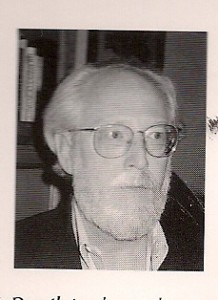
Dr. Doug Dearth, in partnership with Col Al Campen, USAF (Ret) will always remain the original Defense Intelligence Agency (DIA) pioneer for both Open Source Intelligence (OSINT) and Cyber-War.
It was his sponsorship, from within the Joint Military Intelligence Training Center (JMITC) that led to the creation of the first-ever official Open Source Intelligence Handbook (JMITC, 1996).
He and Al Campen published three books on Cyber-War:
Cyberwar: Security, Strategy and Conflict in the Information Age (AFCEA, 1996) with Thomas Godden
Cyberwar 2.0: Myths, Mysteries, and Reality (AFCEA, 1998)
Cyberwar 3.0: Human Factors in Information Operations and Future Conflict (AFCEA, 2000)
Needs bio.

